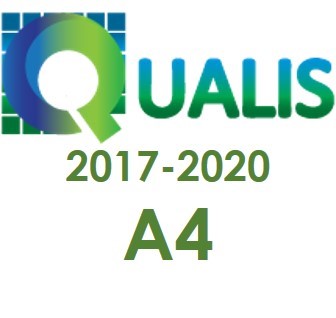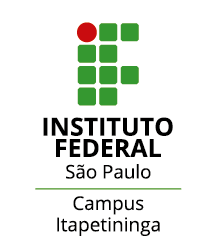Education and diversity
assumptions related to the feminization of teachers in early childhood education
Keywords:
Feminization of teaching. Professor Male. Child education.Abstract
Discussing teaching in Early Childhood Education, especially with regard to the role of the male teacher in the Basic Education stage, has been a difficult task in recent decades. In this sense, the objective of this study is to analyze how the process of feminization of teaching in Early Childhood Education occurred and what are the assumptions that are related to the almost absence of male teachers at this moment in Education. The research is justified by the fact that, when we enter schools that offer Early Childhood Education, we almost do not see, or even do not find, male teachers in the classroom. The study, of a bibliographical nature, was based on authors addressing this subject. We conclude that the greater number of female teachers in Early Childhood Education centers is closely related to the belief that the school environment should be similar to the family context, providing care and assistance, characteristics that were imposed on women, as they were historically seen as more affective. As a result, there are more female professors, simply because they are considered socially fragile, sentimental and maternal. The man, in turn, is seen as strong and determined, having to act in menial roles.
Downloads
References
BOURCIER, Sam. Compreender o feminismo. Tradução de Patrícia Lessa; Fabiana Aparecida de Carvalho; Roberta Stubs. Salvador: Devires, 2021.
BARBOSA, Maria Carmem Silveira. Práticas cotidianas na Educação Infantil – bases para a reflexão sobre as orientações curriculares. MEC-UFRGS: Brasília, 2009. Disponível em: http://portal.mec.gov.br/dmdocuments/relat_seb_praticas_cotidianas.pdf. Acesso em: 25 jul. 2023.
BRAGA, Eliane Rose Maio. Sexualidade Infantil: uma investigação acerca da concepção das educadoras de uma creche universitária sobre a educação sexual. Dissertação (Mestrado em Psicologia). Universidade Estadual Paulista, Assis, 2002.
BRASIL. Lei n. 9394, de 20 de dezembro de 1996. Estabelece as Diretrizes e Bases da Educação Nacional. Brasília: Ministério da Educação, 1996. Disponível em: https://www.planalto.gov.br/ccivil_03/leis/l9394.htm. Acesso em: 25 jul. 2023.
CARDIAL, Karen. Ao excluir professor homem, educação infantil limita convivência com diferentes modos de ser. Revista Educação, São Paulo, 2022. Disponível em: https://revistaeducacao.com.br/2022/02/25/educacao-infantil-homem/. Acesso em: 25 jul. 2023.
FERREIRA, Luan Angelino; SILVA, Fernando Guimarães Oliveira da. A pedagogia tem gênero? O pedagogo cisgênero na educação da infância. Revista Educação Online, Rio de Janeiro, n. 26, p. 23-45, set./dez. 2017. Disponível em: http://educacaoonline.edu.puc-rio.br/index.php/eduonline/article/view/346/172. Acesso em: 10 jan. 2023.
FRANÇA, Fabiane Freire. A contribuição dos estudos de gênero à formação docente: uma proposta de intervenção. Dissertação (Mestrado em Educação). Universidade Estadual de Maringá, Maringá, 2009.
FRANÇA, Fabiane Freire. “O que os pais vão falar?”: gênero, sexualidade e círculos dialógicos com educadoras. Maringá: Eduem, 2022.
GIL, Antonio Carlos. Como elaborar projetos de pesquisa. 7 ed. São Paulo: Atlas, 2023.
LOURO, Guacira Lopes. Gênero, sexualidade e educação: uma perspectiva pós-estruturalista. 16.ed. Petrópolis: Vozes, 2014.
NOGUEIRA, Conceição. Um novo olhar sobre as relações sociais de gênero: feminismo e perspectiva crítica na psicologia social. Lisboa: Fundação Gulbenkian, 2001.
OLIVEIRA, Elisangela Magela. Transformações no mundo do trabalho, da Revolução Industrial aos nossos dias. Revista Caminhos de Geografia, Uberlândia, v.6, n.11, p. 84-96, fev. 2004. Disponível em: https://seer.ufu.br/index.php/caminhosdegeografia/article/view/15327/8626. Acesso em: 20 jan. 2023.
SANTOS, Hugo Marangoni; VEIGA, Selma Borghi. Bendito entre as mulheres: a presença masculina na educação infantil. Periódicos Horizontes, Itatiba, v. 40, n. 1, p. 1-23, ago. 2022. Disponível em: https://revistahorizontes.usf.edu.br/horizontes/article/view/1306. Acesso em: 10 jul. 2023.
Downloads
Published
How to Cite
Issue
Section
License
Copyright (c) 2024 Revista Internacional de Formação de Professores

This work is licensed under a Creative Commons Attribution-NonCommercial-ShareAlike 4.0 International License.



 Este trabalho está licenciado sob uma licença
Este trabalho está licenciado sob uma licença 